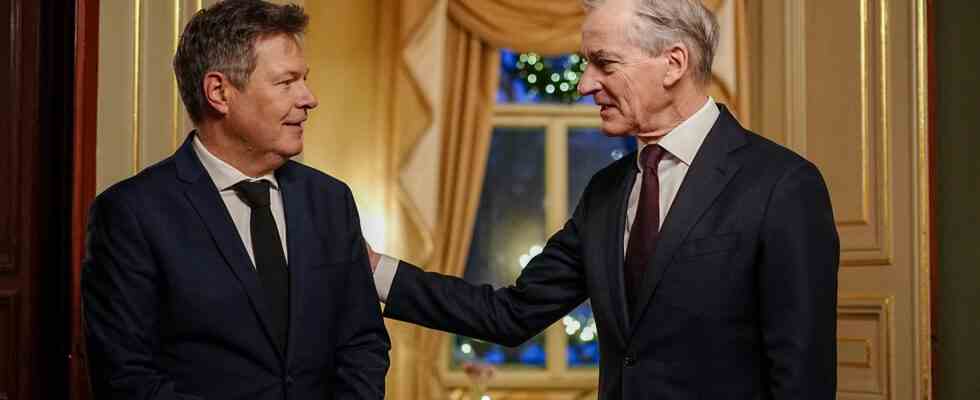Status: 05.01.2023 1:26 p.m
Great hopes rest on hydrogen for the climate-friendly restructuring of the economy. However, Germany is dependent on imports – for example from Norway. Both countries want to build a hydrogen pipeline by 2030.
Vice Chancellor and Federal Economics Minister Robert Habeck and Norway’s Prime Minister Jonas Gahr Störe agreed on a strategic energy partnership in Oslo. Accordingly, Germany and Norway want to work closely together in the long term in the energy and climate crisis. A key point should be the construction of a hydrogen pipeline between the countries by 2030.
The Norwegian energy company Equinor wants to use this pipeline to deliver hydrogen produced initially with natural gas and later with renewable energy to Germany, where RWE wants to buy it. RWE boss Markus Krebber and Anders Opedal from Equinor have agreed on a cooperation – also in the Norwegian capital – as RWE announced.
After the almost complete stop of Russian natural gas deliveries, Norway has risen to become the most important supplier for Germany. A third of Germany’s demand comes from there.
First blue, then green
“We know that hydrogen is particularly important for the green transformation and for Germany,” said Norway’s Prime Minister Störe. Habeck said the fuel is also relevant for new power plants. “We want to build gas-fired power plants that run on hydrogen. This hydrogen can and should be provided from Norway.”
According to RWE, the project announced by the two groups also includes major projects for European energy supply. First of all, so-called blue hydrogen should be imported in large quantities, in the production of which natural gas is used. Later, this is to be replaced by “green hydrogen”, which is obtained with the help of renewable energies.
They also want to invest in hydrogen-capable gas-fired power plants. The plants, with a capacity of around three gigawatts, are to be built by 2030 and run entirely on hydrogen by the mid-2030s. The energy source hydrogen is considered a beacon of hope in the climate-friendly restructuring of the economy.
CCS should become possible
Germany and Norway also want to work together on underground storage of the greenhouse gas CO2. This CCS (Carbon Capture and Storage) technique is banned in Germany.
However, Habeck wants to bring about changes here in order to make CO2 separation possible for the steel or cement industry. In view of the climate goals, there is no longer any time to look for other alternatives: “Better to put the CO2 into the earth than into the atmosphere,” said the Green politician.

